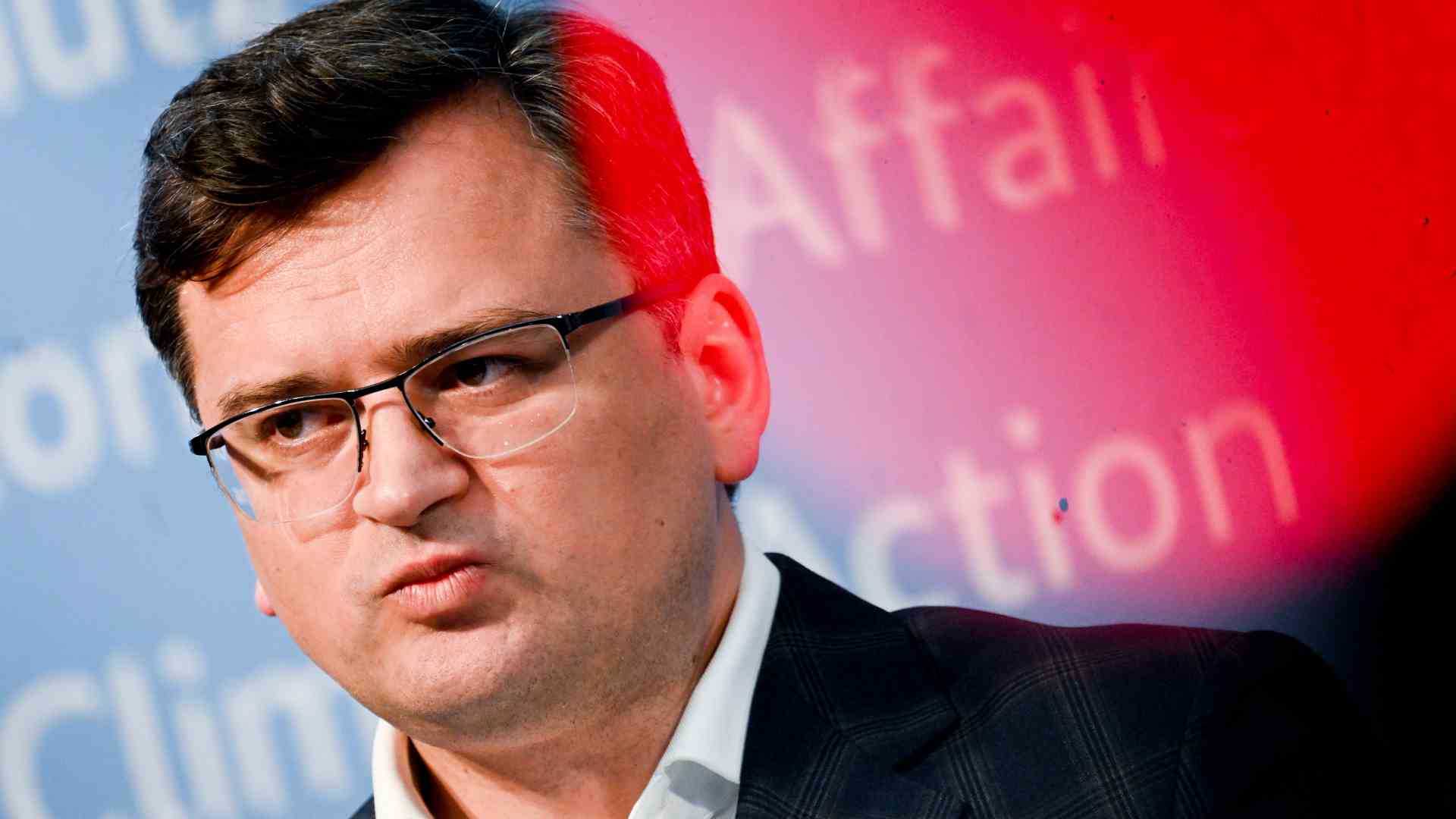Status: 05/12/2022 5:43 p.m
First Baerbock in Kyiv, now her Ukrainian counterpart in Berlin: German-Ukrainian relations have obviously improved again. Nevertheless, Kuleba again criticized the hesitancy in arms deliveries.
During his visit to Germany, Ukrainian Foreign Minister Dmytro Kuleba emphasized that German-Ukrainian relations are back on the right track after the tension and irritation of the past few weeks. “We are seeing positive momentum. I would like to thank the governing coalition and the federal government for moving forward.” Now, however, the right decisions must be made, said the Ukrainian foreign minister with regard to arms deliveries.
Demand for western-style weapons
In a “Welt” interview, he criticized the fact that the Gepard anti-aircraft tanks promised by Germany were not even requested by Ukraine. “The decisive factor for the federal government seems to have been to give us something that they don’t need themselves,” he said. Kuleba also criticized the delivery of seven German Panzerhaubitzen 2000 – heavy, modern artillery pieces – as insufficient. “At the same time that this message came, I received the message from a very small EU country that also wanted to give us seven of the same system. The dimensions are wrong, it doesn’t look good.”
Kuleba demanded the delivery of Western-style fighter jets and missile defense systems. “Let’s forget the Soviet systems, that’s over,” he said. However, he described the EU accession prospects for his country as the most important issue for his country. Public opinion is in favor on both sides, he said. “We’re having a moment where we’re making history with our own hands.”
Kuleba wants EU membership prospects for Ukraine
Kuleba campaigned insistently for the prospect of EU membership for his country. “The European Union needs Ukraine as much as Ukraine needs the European Union.”
In June, the EU Commission intends to make a recommendation as to whether Ukraine should become a candidate country. After that, the member states will decide – perhaps at the EU summit at the end of June. However, all 27 EU countries must agree. Negotiations on an accession agreement usually take years.
“On the way to Europe”
In the past, the EU had made several offers that were then not fulfilled, criticized Federal Economics and Climate Protection Minister Robert Habeck. “This must not happen again.” The path to the EU must be designed in such a way that Ukraine can follow it, but also follow it to the end. And since the pro-European protests of 2013 and 2014 at the latest, Ukraine has been “on the way to Europe”.
SPD leader Lars Klingbeil also spoke out in favor of candidate status for Ukraine. “We must now quickly open up accession prospects for Ukraine and other countries as well,” said Klingbeil, who met Kuleba together with parliamentary group leader Rolf Mutzenich.
The SPD’s Russia policy is no longer an issue
The SPD’s Russia policy in recent decades is no longer an issue for Kuleba. “The pre-war history of German-Russian relations and the role of the Social Democrats in that is something that is now history,” he said. The Ukrainian foreign minister pointed out that Chancellor Olaf Scholz, a social democrat, had reversed German arms deliveries and energy policy. “I know it’s not easy to make decisions like that,” Kuleba said.
He sees the fact that the Chancellor did this with the support of his party as a sign of strength: “They are strong enough to admit that the previous policy has failed and they need a new policy.” The SPD has been criticized for being too close to Russia in recent decades.
Kuleba is visiting Germany for four days and, among other things, is taking part in the G7 foreign ministers’ meeting on the Baltic Sea. In Berlin he met the heads of parties and parliamentary groups as well as members of the government, including Vice Chancellor Robert Habeck.

